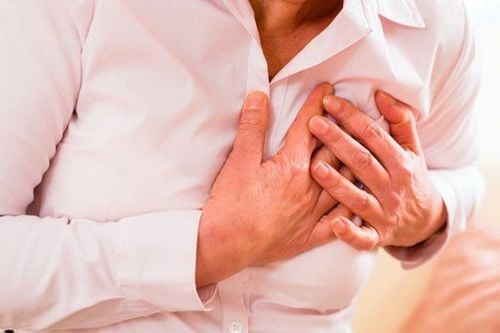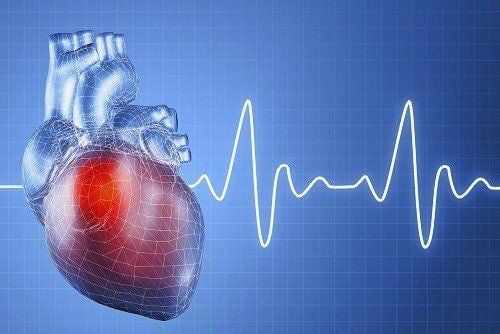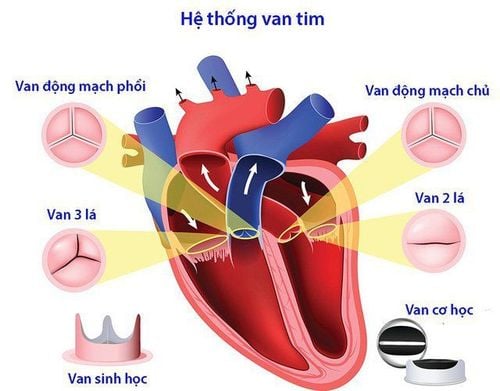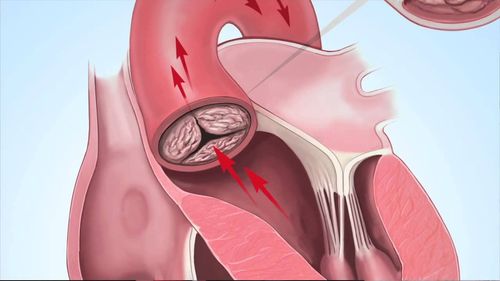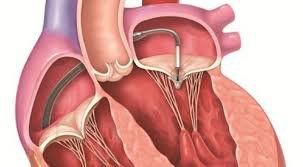This is an automatically translated article.
The article is professionally consulted by Master, Doctor Cao Thanh Tam - Cardiologist - Cardiovascular Center - Vinmec Central Park International General Hospital. Master - Doctor Cao Thanh Tam has many years of experience in the diagnosis and treatment of cardiovascular diseases; Performing transthoracic echocardiography in the field of internal medicine and interventional Cardiology; Perform other non-invasive functional investigations in the diagnosis and treatment of cardiovascular diseases.Heart valves help direct the flow of blood into and out of the heart. Any problem with the heart valve is extremely dangerous to health. Below are some common valvular diseases and advanced valvular treatment solutions currently being applied at Vinmec Central Park International General Hospital.
1. The role of the heart valve
The heart valves are thin, flexible leaflets composed of connective tissue surrounded by the endocardium. Heart valves determine the direction of blood flow, into the heart.There are 4 main types of heart valves, located in the center that are:
Mitral valve: Located between the left ventricle and the left atrium, allowing blood to flow one way from the left atrium to the left ventricle. The blood is then pumped from the left ventricle through the aortic valve into the aorta to bring blood to the body. Pulmonary valve: A valve located between the right ventricle and the pulmonary artery. Tricuspid valve: Located between the right atrium and the right ventricle, allowing blood to flow one way from the right atrium to the right ventricle. Blood flow from the right ventricle through the pulmonary valve into the pulmonary artery carries blood to the lungs for gas exchange and oxygenation. Aortic Valve: A valve located between the left ventricle and the aorta.
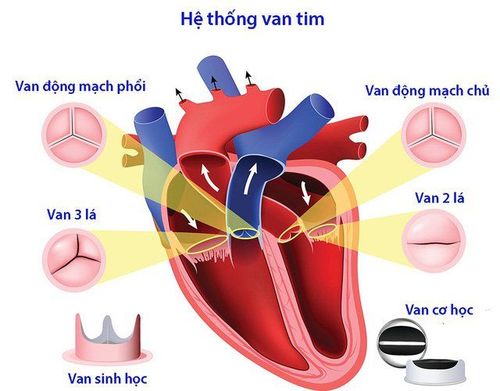
2. Common heart valve diseases
The most common valvular diseases are valvular regurgitation and stenosis.2.1. Heart valve stenosis
When the valve is no longer soft, it becomes thickened or adheres to the edges of the valve, limiting its ability to open and impeding the flow of blood through it. The heart has to work harder to pump blood through the narrowing.Aortic stenosis: is the most severe form of heart valve stenosis. The narrow aortic valve prevents blood from flowing from the left ventricle to the aorta to feed the body.
The majority of this disease occurs in men. There are many causes leading to aortic stenosis such as rheumatic heart disease, degeneration, calcification, mitral valve disease, congenital ...
In the early stages, the patient will not have any special symptoms. In the later stages, some symptoms begin to appear such as chest pain, fatigue, shortness of breath, fast heartbeat, which can gradually cause heart failure.... There are many ways to treat depending on the stage of the disease. such as medication, severe, valve replacement or surgery.
Mitral stenosis This is one of the common cardiovascular diseases in our country, accounting for more than 40% of all heart diseases. Mitral stenosis is a narrowing of the mitral valve that cannot open normally, so blood flow through the valve is reduced, causing blood stasis in the left atrium and pulmonary blood vessels. Symptoms of the disease are cough, shortness of breath, fatigue, dizziness, swelling of the ankles...
Long-term illness can lead to arrhythmia, heart failure... Patients with mitral stenosis may medical treatment, dilatation or surgery, and lifestyle changes.
2.2. Open heart valve
Heart valve regurgitation occurs when the heart valves fail to close properly, allowing some of the blood to back up into the chambers of the heart. Valve regurgitation is usually caused by damage to the leaflets such as retraction, degeneration, perforation, tearing or dilation of the annulus, or excessive length of the valvular ligament or rupture of the suspensory ligament of the heart valve. Similar to valvular stenosis, the most common valvular regurgitation are mitral regurgitation and aortic regurgitation.This manifestation of cardiovascular disease is caused by insufficient blood to feed the body, making the patient always in a state of fatigue, shortness of breath, possibly chest pain.
When the valve is open, the heart has to work harder to compensate for the lack of blood volume due to reflux and to process the residual blood volume for the next contraction, which can over time lead to heart failure.
If the patient has mild valvular regurgitation, it is necessary to have a scientific and reasonable lifestyle. In more severe cases, drugs can be used as prescribed by the doctor in medical treatment or intervention or surgery to replace the valve.
3. Solutions to treat heart valve diseases at Vinmec Central Park International General Hospital
If the patient has symptoms of heart valve disease, it is best to go to a medical facility for a thorough examination and early detection. Because, when valvular heart disease is detected early and treated early along with appropriate lifestyle changes will help improve the disease progression and the patient's quality of life, treatment is simpler than detection. late illness.Vinmec Central Park International General Hospital is currently implementing many packages of cardiovascular disease examination and screening using modern equipment systems. Especially the elderly should have regular check-ups to ensure cardiovascular health for a full life.
For patients with severe, long-term regurgitation of the heart valve can be treated with heart valve repair or artificial heart valve replacement.
At the Cardiovascular Center - Vinmec Central Park International General Hospital, TAVI percutaneous aortic valve replacement technique has been considered a "miracle" for many elderly people who have had heart disease for a long time. , have symptoms and have a survival prognosis of > 1 year, when many patients are even less hopeful.
With the treatment option Heart valve repair, Mitra-Clip is a less invasive method to repair mitral valve regurgitation thanks to the device inserted through the catheter, which has been deployed in many parts of the world, however, in Vietnam, cases performed are very few. Vinmec Central Park International General Hospital has now successfully implemented this technique, helping to improve the quality of life for many patients with severe heart failure.
From July 2019, Vinmec Central Park International General Hospital applies a full-service cardiovascular disease treatment model. This is a treatment modality being carried out at leading Cardiovascular Centers in the US and many other developed countries such as Mayo Clinic, Cleveland Clinic, Pennsylvania....
Package Cardiovascular Treatment Program (BUNDLE) PAYMENT) has been applied at Vinmec Central Park International Hospital with four techniques:
Percutaneous aortic valve replacement (TAVI intervention) Coronary interventional stenting Aortic bypass surgery When there is an indication for cardiovascular treatment with one of the above four methods, the patient will be consulted to select and contract to use the appropriate treatment method. The contract includes the treatment method, length of hospital stay, number of follow-up visits and a fixed cost that the patient has to pay for the duration of the treatment.
Package treatment model is one of the activities to realize the policy of "Patient is the center" at Vinmec International General Hospital. Outstanding advantages of the full-service cardiovascular treatment model at Vinmec Central Park:
Multi-specialty treatment: Patients will have a comprehensive and thorough treatment plan by a multi-specialty team, coordinated from many areas; The treatment regimen is standardized according to the standards of prestigious cardiovascular associations in the world; Patients have direct access to the most appropriate and optimal regimen, avoiding the need to test many different treatment methods that are costly or reduce the effectiveness of treatment; Increase recovery, reduce hospital stay; Peace of mind about the treatment plan and proactive about treatment costs.
Please dial HOTLINE for more information or register for an appointment HERE. Download MyVinmec app to make appointments faster and to manage your bookings easily.





